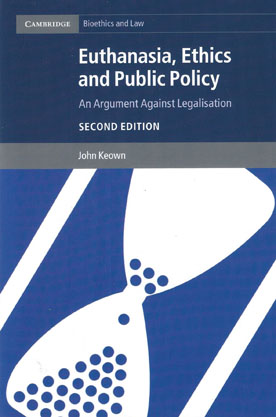
Whether the law should permit voluntary euthanasia and/or physician-assisted suicide is one of the most controversial questions facing modern societies. Many people, moved by 'hard cases' reported by the mass media, support legalisation.
This unique book explains a powerful but misunderstood argument against legalisation: that, even if they were morally justified in 'hard cases', voluntary euthanasia and/or physician-assisted suicide resist effective legal control. For reasons both practical and logical, legalisation would initiate a slide down a 'slippery slope' to ending the lives of patients who did not make a free, informed request; who were not suffering unbearably, and for whom there were alternatives.
The book substantiates the argument that effective legal control is not feasible by drawing on the experience of three jurisdictions which have relaxed their laws: the Netherlands, Belgium and Oregon.